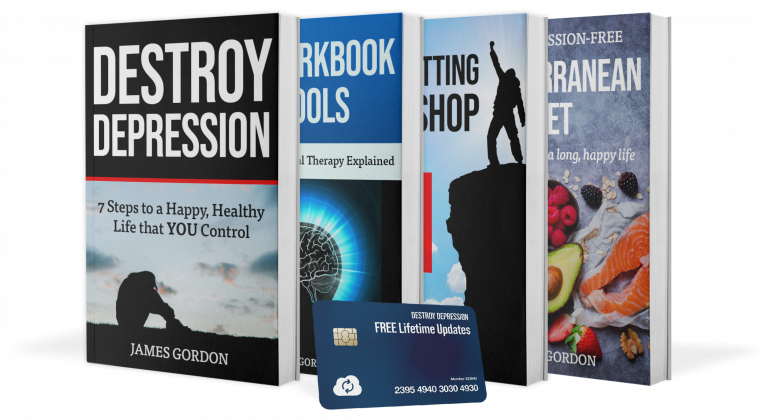This post contains compensation links. A compensation link means I earn a fee if you purchase through my link, at no extra cost to you. Thank you for your support.
If we are depressed this can greatly affect our relationships with family and friends, especially the people we live with.
Relationships And Interactions In Depression
The anger and frustration we feel is often directed at those closest to us and this in turn can test the patience and tolerance of those people.
Maybe our loved ones try to help but instead make things worse.
Sometimes the relationship will collapse, leaving us feeling worse than ever.
Feelings of guilt and worthlessness take over.
The symptoms of depression naturally add to the despair and so it continues in a downward spiral.
STOP!
CBT For Depression
If we’re lonely and isolated it might seem overwhelming at first to try to repair a damaged relationship.
However, in continuing the theme of CBT for depression, if we’ve been using our worksheet and taking care of our sleep, exercise and diet as well as taking in sunlight, then this should be a more manageable mission.
Just being in a social setting such as going out for a coffee or a spot of lunch can work wonders.
Even talking to strangers will challenge the misconceptions we may have about ourselves.
This can help us build strong, meaningful connections.
Open Communication: Key to Overcoming Challenges
Talking to our family and friends about how we feel will open the doors to better understanding all round.
Maybe we can seek counselling or join a befriending scheme.
Anything to stop us avoiding shutting ourselves off and interacting with other people.
Remember the depression is an illness so we can explain to our loved ones that our behaviour is only reflecting that and we do actually value their help and support.
Of course we are doing all we can to fight it and get well again.
Our loved ones most likely want to help but often don’t know how.
In this case we can let them know how they can help us.
Don’t Forget To Enjoy Yourself
A common thing with depressed people is that they find they no longer enjoy the things they used to.
This is actually misleading, as it is the depression clouding our judgment.
We need to decide to get out there again and do the things we love, whether we feel like it or not.
Remember we are challenging every negative thought.
Something that involves interaction with others is a great idea.
How about Zumba classes, boot camp or team sport maybe?
Not only will we interact with others but of course we’re getting in our exercise quota too!
Get Ready To Mingle
Even if we don’t fancy exercise classes there are others such as art, building a website, flower arranging, cooking, simple car mechanics and so forth.
Even if we feel we might benefit from something like weight management or help to stop smoking courses, it’s also getting us out of the house and socialising.
Anything that will get us out there mingling with other people is a step in the right direction.
Providing Support And Understanding
Support from loved ones can make a significant difference in an individual’s journey through depression.
It is vital for partners, friends, and family members to educate themselves about the condition, its symptoms, and available treatment options.
This knowledge enables them to provide the necessary support and empathy to their loved one.
Being understanding and patient during moments of distress or low mood can help alleviate some of the burden individuals with depression may feel in their relationships.
Establishing Boundaries and Self-Care
While providing support is crucial, it is equally essential for us to set boundaries and practice self-care.
It is common for caregivers or loved ones to become overwhelmed and neglect their own well-being when supporting someone with depression.
By establishing boundaries and taking care of our own mental health, we can ensure we have the emotional capacity to support our loved ones effectively.
Overcome The Obstacles Now!
Depression can undoubtedly take a toll on relationships and interactions, but it is possible to navigate these challenges and build stronger connections.
Open communication, providing support and understanding, establishing boundaries, seeking professional help, and overcoming stigma are all key elements to ensure healthier relationships in the face of depression.
By actively working together and supporting each other, we can overcome the obstacles posed by depression and foster a sense of connection and resilience.
“My dear brothers and sisters, take note of this: Everyone should be quick to listen, slow to speak and slow to become angry.” (James 1:19)














